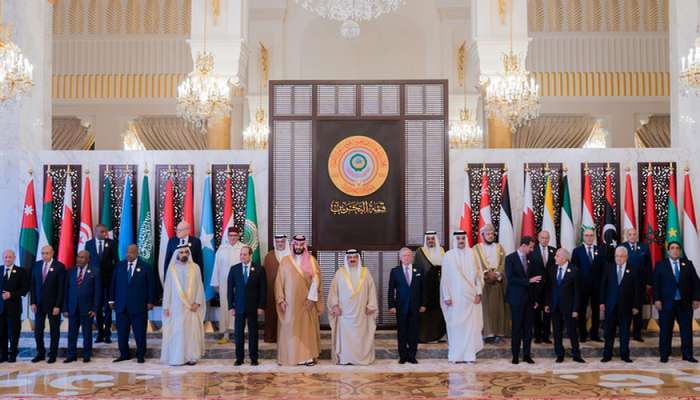The 33rd Regular Arab Summit was held in Manama, the Kingdom of Bahrain, with HH Sayyid Asa’ad bin Tarik Al Said, representing His Majesty Sultan Haitham bin Tarik. The summit was attended by leaders and heads of governments from various Arab states, where HH Sayyid Asa’ad delivered a speech emphasizing the importance of collective action and cooperation in facing the challenges and complications in the region.
The speech highlighted the need for empowerment to ensure the security and stability of the Arab nation, urging for unity and collaboration based on a shared strategy and economic capabilities. HH Sayyid Asa’ad also emphasized the importance of resolving the Palestinian issue through the implementation of the Two-State Solution in accordance with international law and the Arab Peace Initiative.
The summit discussed the implementation of decisions and commitments made in previous meetings, as well as addressing issues related to Arab national security, unstable conditions in some Arab countries, and foreign interventions in Arab states’ affairs. International political affairs, such as the Second Arab-Chinese Summit and the Partnership Forum between the League of Arab States and ASEAN, were also on the agenda.
Economic, social, media, and legal affairs, climate change issues, and resolutions submitted by the Economic and Social Council were discussed during the summit. The joint Arab media strategy to combat terrorism, means to maintain Arab national security, and the amended Arab Human Rights Strategy were among the topics covered at the summit.
Overall, the 33rd Regular Arab Summit in Manama focused on the importance of unity, cooperation, and collective action in addressing the challenges and issues facing the Arab nation. HH Sayyid Asa’ad’s speech emphasized the need for a unified Arab stance on the Palestinian issue and the importance of upholding international law and justice for the Palestinian people. The summit also addressed various economic, social, and political issues facing the Arab region, highlighting the need for continued collaboration and coordination among Arab states.








